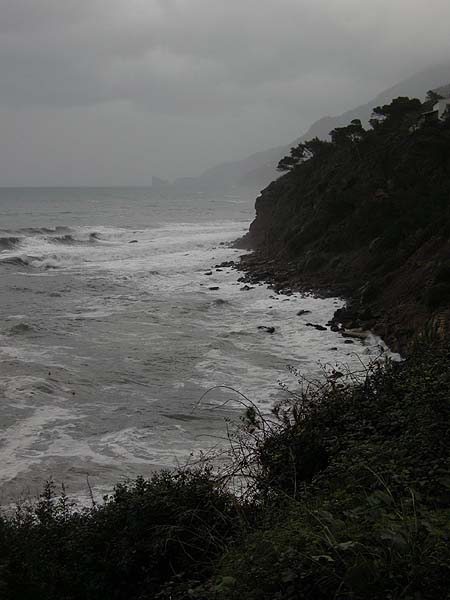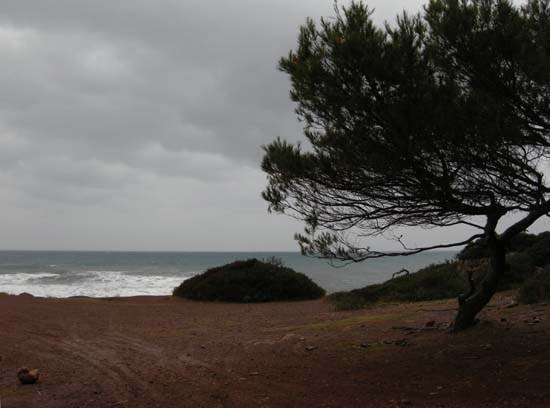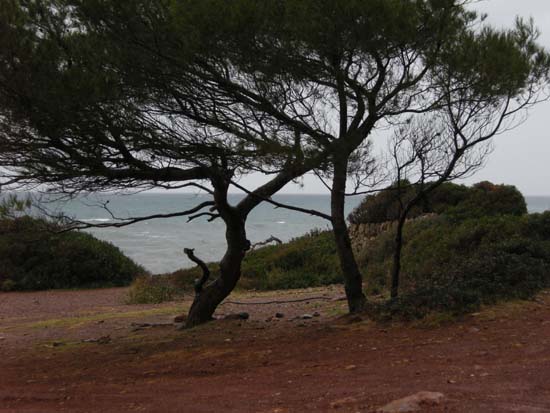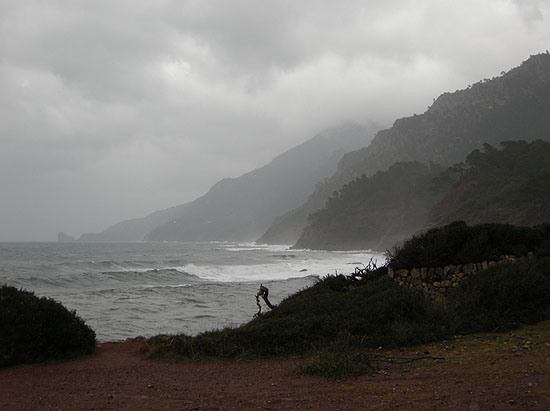
This was the title of the book from which, more than thirty-five years ago, I first learned what the sea is. In the propaganda novel of Klára Fehér a little girl, thanks to the takeover of the Communist Party after 1945, becomes a successful medical researcher. The transcendental climax of her internal transformation following the external one is when Ágnes first catches sight of the sea about which her grandmother told her in her childhood:
“…And then her grandmother always stood up from the bench, she shuffled with heavy steps into the kitchen, and she lifted down the picture hanging on the wall above the iron bed.
It was an unframed card, a printed color picture. The sea.
A light blue, unclouded sky, a smooth, azure water surface. At the meeting of sky and sea, a snow-white ship, and a fresh green palm leaf emerging mysteriously from somewhere in the infinite blue.
– The sea – the old woman said solemnly. – Look… it nowhere has a coast, the sea is infinite, it reaches the stars…”
“…The sea is green as the molten glass, cheerfully slamming the shore. The children ride its foaming waves with rubber animals. Ágnes runs into the hot, salty water, she is swimming on the splashing waves, she is exulting, she is drunk with joy. Well, this is the sea, then!
Wherever she sees, sky and sea are embracing each other. The infinity is color turquoise, and at the edge of the horizon a little white dot: a ship. She is swimming, swimming on the emerald water, and she sees herself, the image of her childhood, her grandmother, the picture above the iron bed covered with a coarse blanket. The colored postcard: sea, ship and palm tree. If there is happiness, then she imagined it always like this.
…She cannot part with the water. She goes to the shore, sits on the rock, lies down on the sand, and lovingly looks the infinite water. By midday the sea becomes dark blue, a smooth, dark blue mirror, no ripple disturbs its surface. In the afternoon it suddenly starts to wave, it becomes gray-brown, rough, inscrutable. At dusk it is dark green as the rocks, only at the horizon it is red, where it bathes the sun.
What if she remained motionless on the shore, if she kept sitting here on the rock, watching the swaying giant until she would feel dizzy and would fall into it… what if she now set on running toward the depths?”

I thought much about the sea. In the early eighties, during a student exchange program, our university team went to the Netherlands. On a cold, rainy autumn afternoon they took us to the sea. I could not move away from the coast. It really was infinite. Not that kind of stupid infinity like one plus one to the infinity. But infinitely vast, complex, vivid and beautiful. And one could play with it. I went to the edge and at every swell I tried to stand to the farthest point where it would come out. The Dutch did not understand it and they indignantly pushed me, soaking wet as I was, into the bus.

Not long after, my friends from the Yugoslavian Vojvodina took me to the Adriatic Sea. We went to places where there was hardly any tourist. I was lying on the shore of a small island. All was filled with the smell of resin. No person was around me, only the sea. I felt someone watching me. As I turned back, deers were staring at me from the pine groove. One of course knows that the sea is not infinite, but its beauty is so many-sided and so intensive that this knowledge does not matter. This beauty even raises you above the inevitable terror of experiencing your own limitations. And no matter how few you are able to receive of it, by way of that you will connect yourself with the sea.
From then on, I dreamed of the sea and longed for the sea.

Twenty years ago I was converted. The infinity has opened for me. Some years ago I noticed that the sea is not so painfully lacking any more. Nevertheless, the things that refer to the person beloved will always remain dear to us.

These pictures were taken just a year ago on the shore of Port d’es Canonge in Mallorca. Not far from here, in the seashore cathedral of Palma within some minutes – just like every Christmas night since seven hundred years – the medieval Song of the Sibyl will resound.
El Cant de la Sibiŀla, Mallorca. Jordi Savall, Montserrat Figueras, La Capella Reial de Catalunya, 1998 (36'50)

